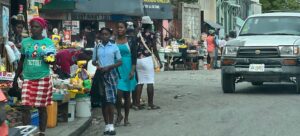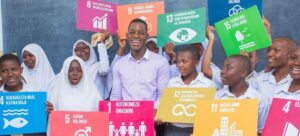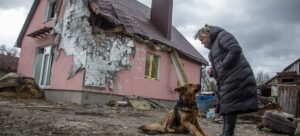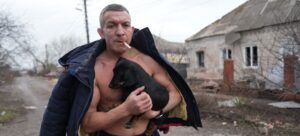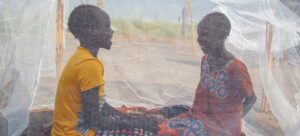Despite “inflammatory rhetoric and violent clashes” between Palestinians and Israeli Security Forces (ISF) at the Holy Sites, Tor Wennesland said that the situation in Jerusalem, remains “relatively calm.”
However, rocket launching in Gaza is “undermining the fragile stability that has prevailed since last May,” he continued.
“Let me be clear: there is no justification for acts of terrorism or violence against civilians. Violence, provocations, and incitement must stop immediately and be unequivocally condemned by all”.
Moreover, all political, religious and community leaders must “do their part to reduce tensions, uphold the status quo at the Holy Sites, and ensure their sanctity is respected”.
Meanwhile, Palestinian leaders have made some commendable efforts to ease tensions, condemn attacks and rein in violence that “should continue,” Mr. Wennesland told the Ambassadors, citing regional and international partners’ help in restoring calm at the Holy Sites and ensuring continued access for Muslim worshippers.
Deadly attacks
Daily violence has escalated sharply in the Occupied Palestinian Territory (OPT) and in Israel, the senior UN official stated.
“In the occupied West Bank and Israel, 23 Palestinians, including three women and four children, were killed by Israeli security forces (ISF) during demonstrations, clashes, search-and-arrest operations, attacks and alleged attacks against Israelis, and other incidents, and 541 Palestinians, including 30 women and 80 children, were injured”.
Moreover, Israeli settlers or other civilians perpetrated 66 attacks against Palestinians resulting in nine injuries and/or damage to Palestinian property.
“In all, 12 Israelis, including two women, as well as three foreign nationals, were killed and 82 Israelis, including some six children and four women, as well one foreign national, were injured by Palestinians in shooting, stabbing and ramming attacks, clashes, the throwing of stones and Molotov cocktails, and other incidents,” Mr. Wennesland said.
In total, Palestinians perpetrated 104 attacks against Israeli civilians resulting in injuries and/or damage to Israeli property. Over two weeks, four terrorist attacks took place inside Israel – the deadliest such attacks in years.
The Special Coordinator elaborated on a heat-breaking list of casualties on both sides since 22 March, saying, “perpetrators of all acts of violence must be held accountable and brought swiftly to justice.”
‘Deeply troubling’
Turning to Gaza, “the security, humanitarian and economic situation remains deeply troubling,” said the Special Coordinator, shining a light on barriers in accessing health care.
“Palestinians in Gaza continue to suffer as a result of years of severe economic and movement restrictions resulting from the Israeli closure regime, as well as the nature of Hamas rule and the ongoing threat of violence”.
Palestinians in Gaza continue to suffer as a result of years of severe economic and movement restrictions – UN Special Coordinator
After several months with no rocket fire, militants in Gaza launched five rockets towards Israel, with one causing property damage in the Israeli town of Sderot. The others were either intercepted by the Iron Dome system, landed short in the Strip, or in open areas inside Israel.
Following the launches, Israeli authorities closed the Israeli Erez crossing to Palestinian workers and traders.
“The indiscriminate launching of rockets towards Israeli population centres violates international law and must stop immediately,” Mr. Wennesland underscored.
Upbeat moves
Some positive developments took place as the Israeli Government approved 20,050 permits for Palestinian workers from Gaza to enter Israel, in addition to some existing 2,500 permits for traders and businessmen.
And the Government also allocated some $12 million to improving the crossings between Gaza and Israel.
Moreover, following an agreement between both sides, preparations are underway to facilitate into Gaza, dual-use materials and equipment needed to repair and maintain fishing boats as part of revitalizing the fishing sector, which Mr. Wennesland upheld, “should pave the way for a similar easing of restrictions in other sectors”.
Ukraine fallout
Following the Ukrainian conflict, rising prices and market disruptions across the Middle East vulnerable families in the OPT are under threat of food security.
The quarterly distribution cost of the UN agency that supports Palestinian refugees, UNRWA, has increased by 42 per cent since the end of 2021 in Gaza – where the UN accounts for nearly 60 per cent of food supply.
Without additional funding, the World Food Programme (WFP) and UNRWA will not be able to meet the Palestinian’s food needs this year, which could lead to destabilization across the OPT, particularly in the Gaza Strip.
He appealed for urgent support to UNRWA, which faces a critical financial situation and urged the parties, regional partners and international organizations to move the Palestinian Authorities (PA) onto “a firmer fiscal footing”, while addressing broader systemic issues.
Spiralling tensions
Violence over the past month has underscored that managing the conflict is not a substitute towards resolving it.
The UN official encouraged lowering tensions, maintaining calm and addressing conflict drivers, and added that settlements be halted, the PA’s fiscal stability shored up and Palestinian institutions strengthened to lay the foundations for a political process towards a two-State reality.
Latest offense
Amidst ongoing tensions in Israel and the OPT, Mr. Wennesland raised his concern over rocket fire across the Blue Line into Israel this morning, which Israel responded to with artillery fire into Lebanon.
There were no casualties reported and the UN Interim Force in Lebanon (UNIFIL) continues to engage with the Lebanese Armed Forces to increase its counter rocket launching operations to prevent further such incidents and contribute to stability along the Blue Line.


